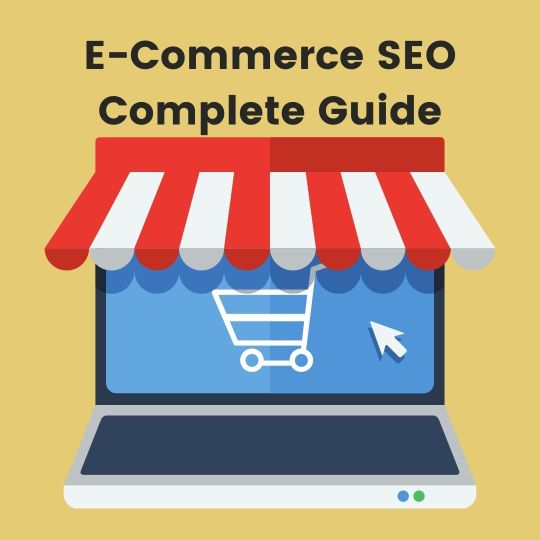Text
Ecommerce SEO: A Guide to Search Engine Optimization for Your E-Commerce Business
Are you running an eCommerce store? If so, there is a good chance that you have heard about Ecommerce SEO. E-Commerce search engine optimization (E-Commerce SEO) is the process of optimizing your online business for search engines such as Google and Bing so that they rank better in their organic rankings when people are searching for products or services like yours. In this article, we will discuss why E-Commerce SEO matters, how it works, the difference between organic and paid search results, and how to get started with eCommerce SEO.

What is Ecommerce SEO?
E-Commerce search engine optimization (E-Commerce SEO) encompasses a wide range of activities that involve optimizing websites so they show up higher in the organic or unpaid results on SERPs. The major goal here is to attract more visitors and customers, which leads to greater sales.
The main objective when it comes to E-Commerce SEO is to rank higher in organic search engine results. When a person does a search and your site ranks on the first page, this means that it has high visibility and may attract more visitors than sites that are lower down on the list of results.
Why do you need Ecommerce SEO?
Research shows that people spend 80% of their time on just the first page of search engine results, so E-Commerce SEO is important for maximizing your website's exposure.
E-Commerce SEO can help you increase sales by driving traffic to your site. For example, if it takes an average shopper four hours to research a product online and convert it into a purchase, then optimizing for E-Commerce SEO can help you increase the number of visitors by as much as four times.
How does eCommerce SEO work?
The process begins with identifying keywords that your target audience uses when they search online for products like yours and then optimizing them in a way to attract more organic traffic from SERPs through optimization techniques such as keyword research, on-page optimization, and link building.
The E-Commerce SEO process also includes optimizing your site for usability (user experience). For example, it is important that a customer can find key pages of information they need without having to click around the website too much or take an excessive amount of time searching.
What are the differences between eCommerce SEO and PPC?
E-Commerce search engine optimization (E-Commerce SEO) is focused on ranking your site higher in SERPs for free while paid search, also known as pay per click or PPC, involves paying to rank better.
There are pros and cons associated with each approach. E-Commerce SEO provides better long-term results but there are some upfront costs, such as setting up Ecommerce SEO. Paid search is more expensive in the short term and may produce a quick return on investment (ROI) depending on how much you spend.
E-Commerce SEO involves ranking higher for specific keywords so your site appears at the top of SERPs when someone does a search. Ecommerce SEO is not the same as PPC advertising, which involves buying your way to rank better in organic results by purchasing ad space on Google or Bing's SERPs.
E-Commerce SEO can be tricky and time-consuming if you are new at it because there are many factors that come into play here such as understanding the E-Commerce SEO process, putting those steps into place on your site, and monitoring progress to see what is working.
How do you get started with eCommerce SEO?
E-Commerce search engine optimization (E-Commerce SEO) starts with a few simple steps which include creating an optimized website that includes relevant keywords in the content of web pages, meta tags, and other on-page elements. Ecommerce SEO also involves the use of links to your site from other sites, which is known as link building. Link building can be done manually but most people turn to automated tools that help with this process like Google Adwords or Yahoo! Search Marketing for PPC advertising campaigns.
An important part of E-Commerce SEO is analyzing the results you are getting and adjusting your campaign accordingly. ECommerce SEO is about testing and experimenting to see what works best.
1 note
·
View note